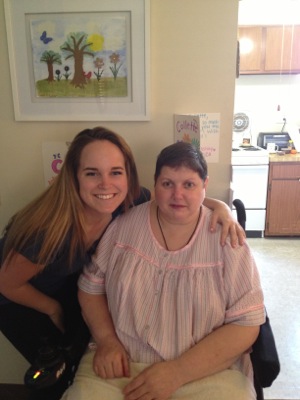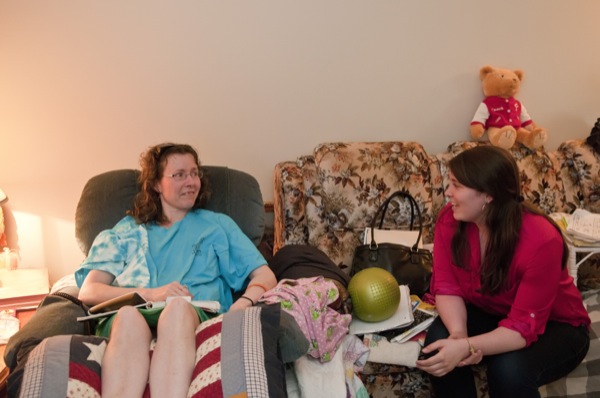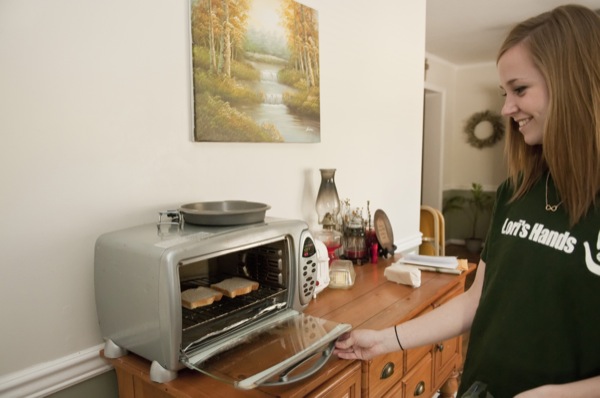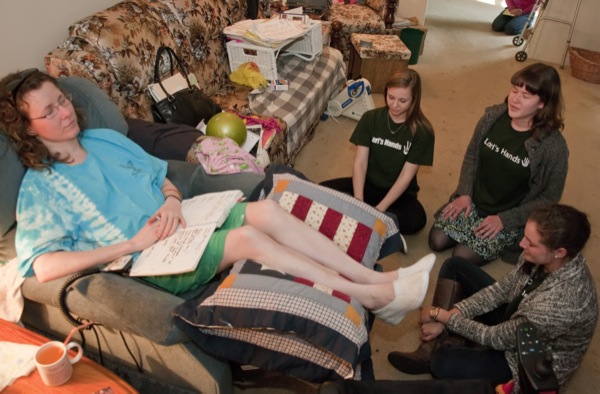

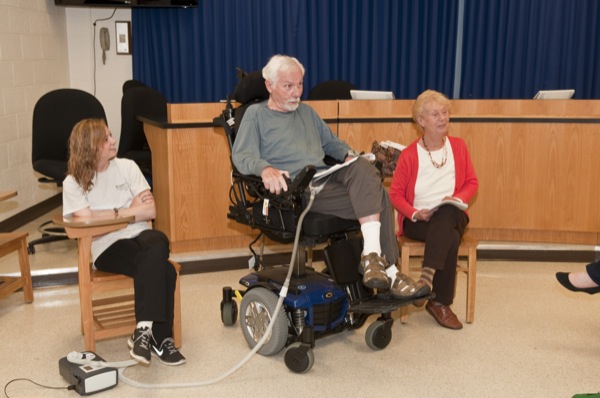
Chronic illness
New course uses experiential service learning to enrich understanding of patient experience
9:46 a.m., July 9, 2013--Four young women participate in a meditation session, with the leader guiding the others to “be in the moment” and let go of their worries.
Their worries, however, couldn’t be more different.
Campus Stories
From graduates, faculty
Doctoral hooding
Three members of the group are typical college students, concerned about exams, papers, and other end-of-semester commitments, while the fourth carries the anxieties of a person with a chronic illness.
None of them would have met if not for a new transdisciplinary course at the University of Delaware, Chronic Illness in America: From Policy to Person (HLTH267).
An outgrowth of the Lori’s Hands registered student organization at UD, the course incorporates both classroom and experiential learning by pairing students with chronically ill clients in the community.
“The course allows students to connect with these individuals and provides an opportunity for both to benefit from the experience,” says Cynthia Diefenbeck, assistant professor in UD’s School of Nursing. “The students link these deeply meaningful human encounters to the course content, which includes a sweeping overview of individual, family, community, and national policy-level issues.”
“I’ve been amazed at the breadth of students during this first semester,” she adds. “The course has brought together a microcosm of budding stakeholders who now have a foundation for joining forces to address a broad range of health care issues in the future. They have really enjoyed wrestling with big questions like ‘How do we sustain quality health care?’ and ‘How do we afford it?’”
The course is co-taught by Lori’s Hands founder Sarah LaFave, who graduated from UD in 2011 with a degree in nursing. LaFave started the organization in 2009 in memory of her mother, who had died of breast cancer when LaFave was just 14 years old.
Students work in pairs with clients selected specifically for the class. Premed student Christine Manta, along with English and women’s studies major Kelly Grzinic, worked with Stephanie Weir, who has multiple sclerosis, during the spring semester.
“The class appealed to me because of its focus on patient interaction and chronic illness,” Manta says. “As a future physician, I felt I needed to learn more about the health care system. Stephanie is really into alternative medicine, and working with her has helped me see that there has to be a compromise between what the patient wants and what the physician thinks she needs.”
Partnering with Grzinic has also been enlightening for Manta. “We started talking in the car on the way home after our first visit with Stephanie,” she says. “The amazing thing was that we quickly realized we were coming away from the same experiences with completely different ideas. Kelly brings in a ‘whole-person’ type of perspective that’s very different from what I’m exposed to with my pre-med and science friends.”
For Grzinic, working with Weir has been a reminder that nothing is certain in life. “We can build up expectations, but there’s no guarantee about anything,” she says. “It’s been an incredible experience to see Stephanie handle this illness with such grace.”
Diefenbeck, who was LaFave’s Honors thesis adviser at UD, has welcomed the opportunity to mentor her as a teacher.
“I saw her passion when she was an undergraduate,” Diefenbeck says. “I really wanted to help her launch her career because I think she has a great deal to share with others about this subject.”
(Editor’s note: HLTH267 ran as an experimental course during the spring 2013 semester. When this article was posted, the course was being considered for permanent adoption.)
Article by Diane Kukich
Photos by Doug Baker




